sol2070 wants to read After World by Debbie Urbanski
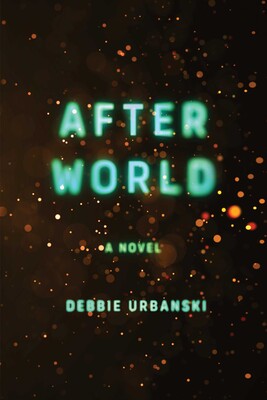
After World by Debbie Urbanski
One of San Francisco Chronicle’s Favorite Books of 2023 “An intelligent, defiant novel, akin to any of Annalee Newitz’s writings …
Costumo ler fic-spec, filosofia, sobre natureza, política, tech etc. Mais livros no blog → sol2070.in/livros Também escrevo ficção científica → fic.sol2070.in/ Mastodon → @[email protected] Clube do livro Contracapa → contracapa.club
This link opens in a pop-up window

One of San Francisco Chronicle’s Favorite Books of 2023 “An intelligent, defiant novel, akin to any of Annalee Newitz’s writings …
(em português → sol2070.in/2023/12/livro-spinoza-philosophy-of-hope )
"The Philosophy of Hope - Beatitude in Spinoza" (2023), by Alexander Douglas, analyzes the philosophy of Spinoza (17th century) as a conception of existence that brings absolute contentment.
Despite being more accessible than the average philosophy book -- especially on Spinoza, which usually yields exponential complexity -- it is still aimed at those who are already familiar with philosophy and this author.
This wasn't such a problem for me, as Spinoza is my favorite philosopher, but it can be challenging as an introduction to this thought.
Douglas emphasizes Spinoza's path of "beatitude", something that in his seminal work "Ethics" doesn't receive a very detailed and explicit presentation, despite being a central point.
Beatitude (from the Latin "beatitudo") is a word associated with Christianity, meaning "spiritual happiness". Previously, it simply meant "happiness". In Spinoza, it denotes an extraordinary contentment, resulting from a full understanding of oneself …
(em português → sol2070.in/2023/12/livro-spinoza-philosophy-of-hope )
"The Philosophy of Hope - Beatitude in Spinoza" (2023), by Alexander Douglas, analyzes the philosophy of Spinoza (17th century) as a conception of existence that brings absolute contentment.
Despite being more accessible than the average philosophy book -- especially on Spinoza, which usually yields exponential complexity -- it is still aimed at those who are already familiar with philosophy and this author.
This wasn't such a problem for me, as Spinoza is my favorite philosopher, but it can be challenging as an introduction to this thought.
Douglas emphasizes Spinoza's path of "beatitude", something that in his seminal work "Ethics" doesn't receive a very detailed and explicit presentation, despite being a central point.
Beatitude (from the Latin "beatitudo") is a word associated with Christianity, meaning "spiritual happiness". Previously, it simply meant "happiness". In Spinoza, it denotes an extraordinary contentment, resulting from a full understanding of oneself and the cosmos.
The book helped to increase my appreciation of Spinoza. I like to read repeatedly about favorite subjects because it crystallizes understanding.
"The Philosophy of Hope" exhaustively analyzes some difficult points, such as the idea of "God or Nature" as being both all that exists and a kind of substance (the only one that exists) of which all phenomena are only modes.
He also demonstrates the similarities between Spinoza's thought and Taoism, despite the fact that the philosopher had no contact with this Eastern philosophy, in which, likewise, instead of an almighty god, there is only the universe interconnected in its expressions. Harmony and natural flow lie in not going against reality or nature.
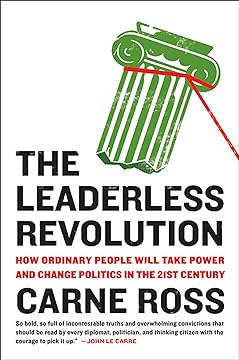
The Leaderless Revolution explains why our government institutions are inadequate to the task of solving major problems and offers a …
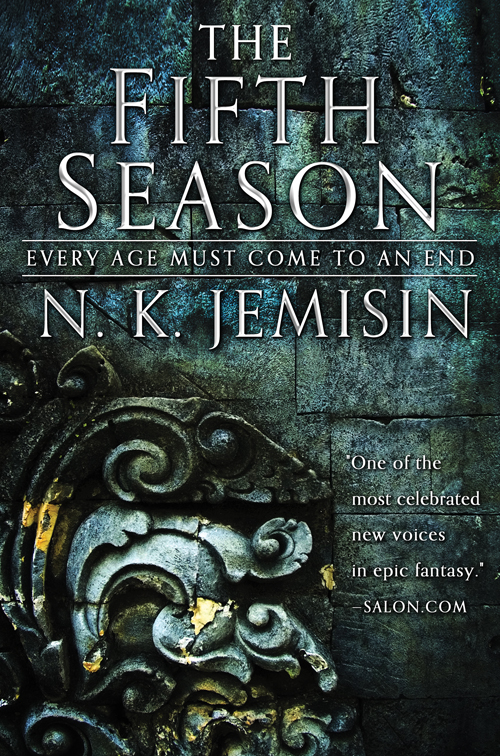
A SEASON OF ENDINGS HAS BEGUN.
IT STARTS WITH THE GREAT RED RIFT across the heart of the world's sole …
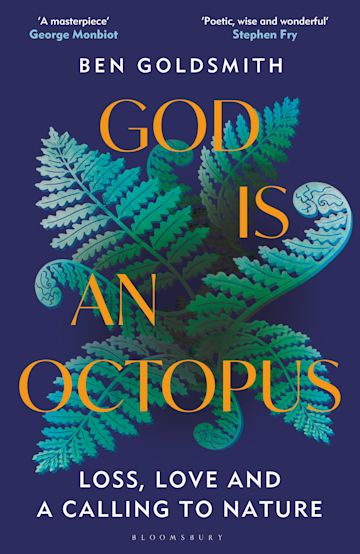
Struggling to comprehend the shocking death of his teenage daughter, Ben Goldsmith finds solace in nature by immersing himself in …
Barba Ensopada de Sangue (2012), de Daniel Galera, foi um dos melhores romances brasileiros que já li.
Como toda resenha alerta, não é o que o título sugere — talvez alguma história criminal violenta. É basicamente sobre solidão, família e relacionamentos.
Queria ler Daniel Galera faz tempo, pois nos primórdios da internet brasileira, no final dos anos 90, era leitor assíduo de um mailzine literário em que ele escrevia, o CardosOnLine.
Adorei principalmente porque sou mais ou menos da mesma geração e universo. Tudo é bem familiar: cenários, referências culturais, jeito de falar, baladas… Alguém que conheço ou até mesmo eu poderíamos ser personagens dessa história.
O livro é daqueles que prendem na poltrona mesmo não tendo suspense e tensão como guias principais, com fluidez e estilo únicos. Li numas quatro sentadas em dois dias.
Apesar de não ser tão central, há sim uma trama fascinante, sobre um mistério familiar …
Barba Ensopada de Sangue (2012), de Daniel Galera, foi um dos melhores romances brasileiros que já li.
Como toda resenha alerta, não é o que o título sugere — talvez alguma história criminal violenta. É basicamente sobre solidão, família e relacionamentos.
Queria ler Daniel Galera faz tempo, pois nos primórdios da internet brasileira, no final dos anos 90, era leitor assíduo de um mailzine literário em que ele escrevia, o CardosOnLine.
Adorei principalmente porque sou mais ou menos da mesma geração e universo. Tudo é bem familiar: cenários, referências culturais, jeito de falar, baladas… Alguém que conheço ou até mesmo eu poderíamos ser personagens dessa história.
O livro é daqueles que prendem na poltrona mesmo não tendo suspense e tensão como guias principais, com fluidez e estilo únicos. Li numas quatro sentadas em dois dias.
Apesar de não ser tão central, há sim uma trama fascinante, sobre um mistério familiar que o personagem vai desencavando quando se isola em Garopaba (SC) após a perturbadora morte do pai e de adotar sua cadela.
O protagonista tem prosopagnosia, uma condição em que rostos não são reconhecidos (nem o próprio), o que o faz ver pessoas e o mundo de uma maneira peculiar.
Lembrei bastante do livro O Estrangeiro (1942), de Albert Camus. Apesar de os personagens e a história terem muitas diferenças, a atmosfera e a experiência me pareceram similares. Há uma distância com as outras pessoas, que abre um ponto de vista único.
É daqueles livros que a gente sente um forte impulso de conversar com a pessoa que escreveu ao final.
Há um porém que não chega a ser crítica. Como costumo preferir histórias de forte impacto existencial ou dimensões mitológicas, ficou um sabor nem tão profundo no fim, em comparação com outras coisas que venho consumindo. Talvez não seja algo transformador, ou que vá lembrar intensamente daqui a uns anos. Mas quem disse que precisa ser assim? Daria pra dizer que é algo mais pop, no bom sentido.
Já coloquei os outros livros de Galera na fila.
(publicado em sol2070.in/2023/11/tormenta-espadas-gelo-e-fogo-3)
"A Tormenta de Espadas" (2000) é o terceiro volume da série Crônicas de Gelo e Fogo, de George R.R. Martin, em que a série Game of Thrones (2011-19) se baseia.
A história original é sim melhor que a da tela. Mas também acho a adaptação da HBO imperdível. Já mencionei porque adoro:
Para quem é fã, vale a pena ler os livros após ver a série porque, além de os rostos e cenários surgirem espontaneamente na mente, a história se aprofunda, inclusive com elementos cruciais inéditos.
Apesar de o enredo básico ser o mesmo, os livros têm uma narrativa bastante diferente, em um formato para o qual antes não tinha muita paciência. Com descrições minuciosas, cada volume acaba somando em média 1000 páginas …
(publicado em sol2070.in/2023/11/tormenta-espadas-gelo-e-fogo-3)
"A Tormenta de Espadas" (2000) é o terceiro volume da série Crônicas de Gelo e Fogo, de George R.R. Martin, em que a série Game of Thrones (2011-19) se baseia.
A história original é sim melhor que a da tela. Mas também acho a adaptação da HBO imperdível. Já mencionei porque adoro:
Para quem é fã, vale a pena ler os livros após ver a série porque, além de os rostos e cenários surgirem espontaneamente na mente, a história se aprofunda, inclusive com elementos cruciais inéditos.
Apesar de o enredo básico ser o mesmo, os livros têm uma narrativa bastante diferente, em um formato para o qual antes não tinha muita paciência. Com descrições minuciosas, cada volume acaba somando em média 1000 páginas (na versão em inglês). Não há aquele ritmo videoclípico que se popularizou entre bestsellers. A imersão é lenta em direção a uma profundidade gigantesca.
Talvez esse seja um dos motivos por que os livros conquistaram tanta gente mesmo antes da adaptação. Li uma resenha em que essa série literária estava acabando com um casamento. A esposa reclamava que o parceiro parecia cada vez mais distante, meio que em outro mundo. Sinto esse efeito também.
Depois de uma sessão mais longa de leitura, a saga preenche tudo, ao ponto de outras preocupações reduzirem. É o tipo perfeito de escapismo, no bom sentido. Nunca senti isso com outras séries.
Costumo ler pelo menos uns três livros simultaneamente. Mas "A Tormenta de Espadas" me fazia pausar os outros por várias semanas, demandando dedicação exclusiva.
Entre os três livros que já li, esse foi o que mais me pegou. Não que seja diferente, todos basicamente formam um único livro imenso. Talvez o motivo seja porque já faz um bom tempo que assisti a série, e agora a história escrita definitivamente tomou vida própria.
Diversos momentos ainda evocam comparações, em que a adaptação para a tela perde. Há reviravoltas e revelações cuja sentimento de exclamação efusiva fica, coisa exclusiva dos livros, que na tela não ficou bem resolvida.
Nesse volume, outros aspectos que ficaram de fora na TV e que adorei são os seguintes.
Aparece bem claro o conflito sociopolítico entre os "selvagens bárbaros", que são praticamente um povo originário anarquista, e a civilização autoritária dominante, autodestrutiva e xenófoba.
Também aparece com destaque uma dimensão maior, teológica. O "gelo e fogo" do título se referem a um embate cíclico entre bem e mal, entre o "Deus da Luz" R'hllor e as geladas trevas. Bem e mal podem soar batidos, mas esse é um dos mais envolventes retratos que já vi dessa dualidade. No quadro maior, reis caem ou ascendem, dragões ressurgem e guerras são travadas como sendo os aspectos da interação dessas forças.
No final, me resignei a ler os livros restantes quase lamentando, pois sequestram demais coração e mente.
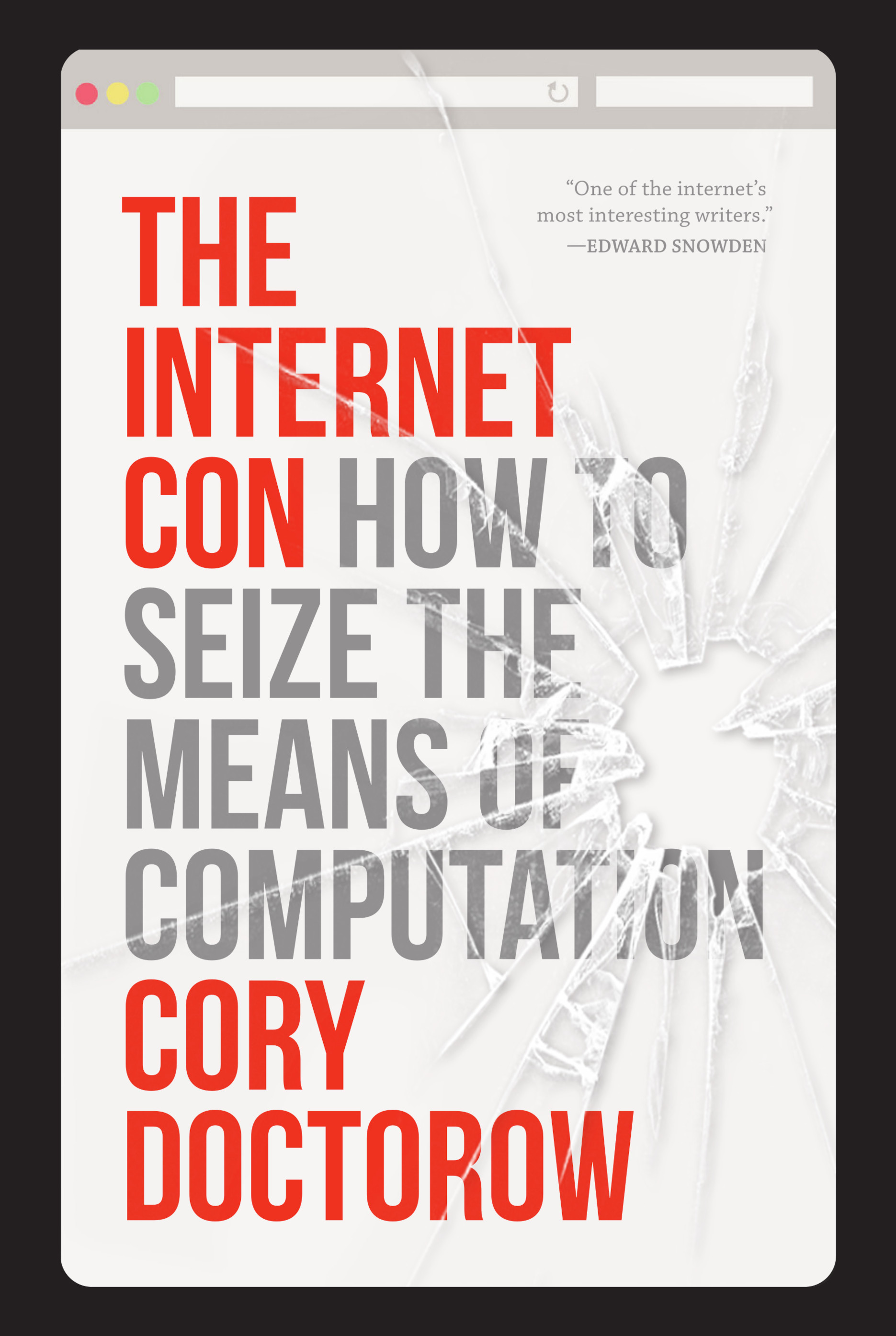
When the tech platforms promised a future of "connection," they were lying. They said their "walled gardens" would keep us …
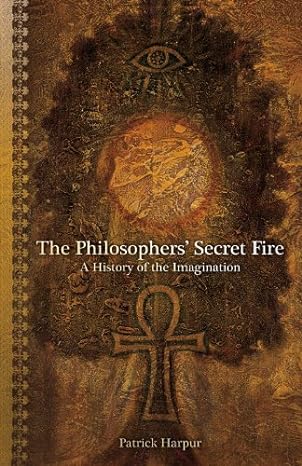
Is there any place for the ancient myths of our ancestors in modern times? Could their shadowy presence in our …
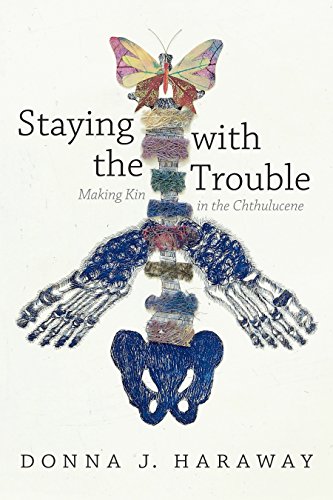
In the midst of spiraling ecological devastation, multispecies feminist theorist Donna J. Haraway offers provocative new ways to reconfigure our …
(em português com links → sol2070.in/11/golpe-internet-cory-doctorow )
"The Internet Con" (2023) is the latest non-fiction book by Cory Doctorow, who also writes great speculative fiction.
I don't think it's an exaggeration to call it "con". People are held hostage, abused and only the perpetrators win.
Cory was the one who coined a term that is now common to understand a central aspect of this scam: "enshittification". This suggestive language ended up having a lot of appeal to what many people already feel. For example, using Instagram or Twitter sucks, but people continue because there isn't much choice. Once everyone is a hostage, it becomes a kind of extortion.
The book details the context, the history and the ins and outs of the scam, including many recent illustrations of the antics of companies like Apple or Google, or the complicity of governments in the domination of monopoly trusts which, not limited …
(em português com links → sol2070.in/11/golpe-internet-cory-doctorow )
"The Internet Con" (2023) is the latest non-fiction book by Cory Doctorow, who also writes great speculative fiction.
I don't think it's an exaggeration to call it "con". People are held hostage, abused and only the perpetrators win.
Cory was the one who coined a term that is now common to understand a central aspect of this scam: "enshittification". This suggestive language ended up having a lot of appeal to what many people already feel. For example, using Instagram or Twitter sucks, but people continue because there isn't much choice. Once everyone is a hostage, it becomes a kind of extortion.
The book details the context, the history and the ins and outs of the scam, including many recent illustrations of the antics of companies like Apple or Google, or the complicity of governments in the domination of monopoly trusts which, not limited to technology, dominate all industry.
The style is the charismatic way in which the author has made a name for himself, managing to portray even the most technical and administrative parts of technology in an engaging way. (I can't forget a captivating short story from 2007, craphound.com/overclocked/Cory_Doctorow_-Overclocked-_When_Sysadmins_Ruled_the_Earth.html about an apocalypse in the information age, full of technical details and hacker nerdiness, whose protagonists are system administrators!)
Cory has worked for many years at the Electronic Frontier Foundation, a crucial NGO in the field, and examples of this kind of activism are another attraction of the book.
The second half of the book is the presentation of solutions, which don't have much escape from government regulation, being the "boring but necessary" part.
Another central theme is also discussed, the interoperability potentially inherent in any computing device, but which is blocked by big tech as a way of forcing their domination. Ensuring our freedom to put our devices and software to use is one of the key technical points in destroying this prison.
In the final third, which clarifies common doubts about the essential measures, I felt that the discussion started to become superficial, as if there was a rush to conclude, given that it's a short book, at 192 pages. But nothing that compromises the book too much.
(original em português → sol2070.in/2023/10/pos-anarquismo-murray-bookchin )
"The Murray Bookchin Reader" (1999; available free from the Anarchist Library) brings together articles written between the 1960s and 1990s by this immensely influential thinker and activist for the anarchist, ecological and "new left" movements in general. The collection attempts to summarize Bookchin's thinking.
One of the marks that Murray Bookchin (1921~2006) left was the revitalization, in the 1960s, of anarchism and decentralism as solid alternatives to capitalism, free from the traps of socialism. At the same time, he was also one of the pioneers in thinking of ecology as a fundamental element for change, foreseeing our ecological emergency.
It wasn't the most fluid reading. Some of the articles seemed dated and sometimes gave the impression of a patchwork quilt. In those moments, I wanted to read a book by him dedicated to a single theme, rather than a collection of brushstrokes on everything. …
(original em português → sol2070.in/2023/10/pos-anarquismo-murray-bookchin )
"The Murray Bookchin Reader" (1999; available free from the Anarchist Library) brings together articles written between the 1960s and 1990s by this immensely influential thinker and activist for the anarchist, ecological and "new left" movements in general. The collection attempts to summarize Bookchin's thinking.
One of the marks that Murray Bookchin (1921~2006) left was the revitalization, in the 1960s, of anarchism and decentralism as solid alternatives to capitalism, free from the traps of socialism. At the same time, he was also one of the pioneers in thinking of ecology as a fundamental element for change, foreseeing our ecological emergency.
It wasn't the most fluid reading. Some of the articles seemed dated and sometimes gave the impression of a patchwork quilt. In those moments, I wanted to read a book by him dedicated to a single theme, rather than a collection of brushstrokes on everything. I should have started with "The Next Revolution" (2015) or "The Ecology of Freedom" (1982).
I insisted on reading it because there are so few people like Bookchin, who fuses anarchism with ecology, offering a very practical model for change, pointing out the trap that is the default option when thinking about anti-capitalism (after decades of militancy, he abandoned socialism).
I disagree with him on some central points. But his rich contribution is undeniable.
In the 1990s, he also ended up abandoning anarchism. Or rather, perhaps he was abandoned, since a good proportion of "root anarchists" reject approaches such as direct democracy assemblies as being "too political". Since Bookchin didn't give up on mobilization and collective political engagement, he decided to abandon "official anarchism". On that point, I'm 100% with him.
One point on which I disagree is his passionate condemnation of deep ecology. He saw it as a kind of "mysticism" in relation to nature, and insisted that human beings are superior to other forms of life. He was obviously a convinced materialist.
I agree that the ecological movement getting mixed up with new age and self-help ideas - something very common today - is something that dilutes ecology to the point where the movement becomes innocuous. Not only is there no more confrontation with the destructive systems, but this can even strengthen them in the end.
But Bookchin's vigorous denial of transcendent principles in the "bigger nature" seems a bit over the top to me. No "mysticism" is required here, just as recognizing the "equality" between humans and other forms of life doesn't involve any irrationality either.
He also spares no criticism of what he calls "lifestyle anarchism", in which the individual aspects of freedom and expression are emphasized, rather than (self-)organization in solidarity. This uncomfortable characteristic has existed in anarchism since its beginnings, making the movement in many ways more like a brother to liberalism than to socialism.
In recent decades, this has gained strength, for example, among anarcho-primitivists. Now, there are even millionaires who declare themselves anarcho-capitalists ("Anarchy for the rich to do whatever they want. Government austerity for the poor.")...
Bookchin used a lot of his energy to denounce co-optations like these which, according to him, undermine anarchism, the ecological movement and the left in general from within.
Indeed. For example, I always remember that, on several historical occasions, it wasn't the capitalist system that crushed anarchists (including executions), but the socialist parties.
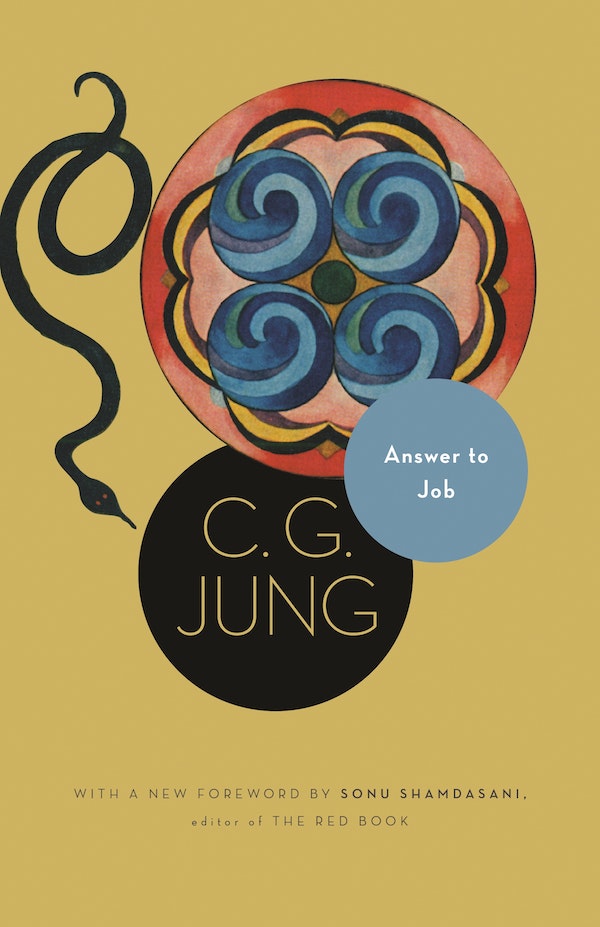
Considered one of Jung's most controversial works, Answer to Job also stands as Jung's most extensive commentary on a biblical …

When the tech platforms promised a future of "connection," they were lying. They said their "walled gardens" would keep us …
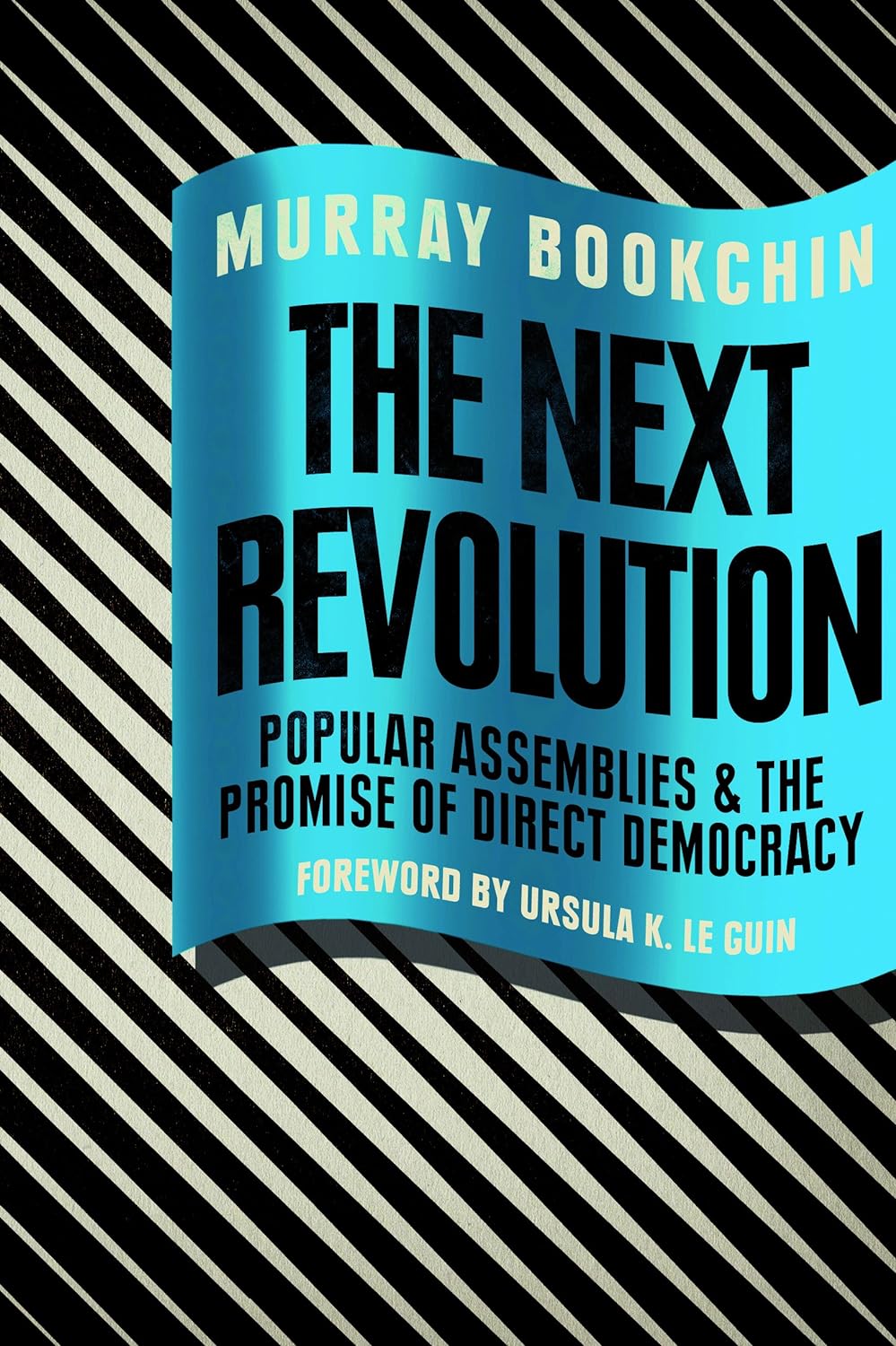
"Many similarities exist between the new movements against austerity that have emerged since 2011, ranging from Taksim Square in Turkey …